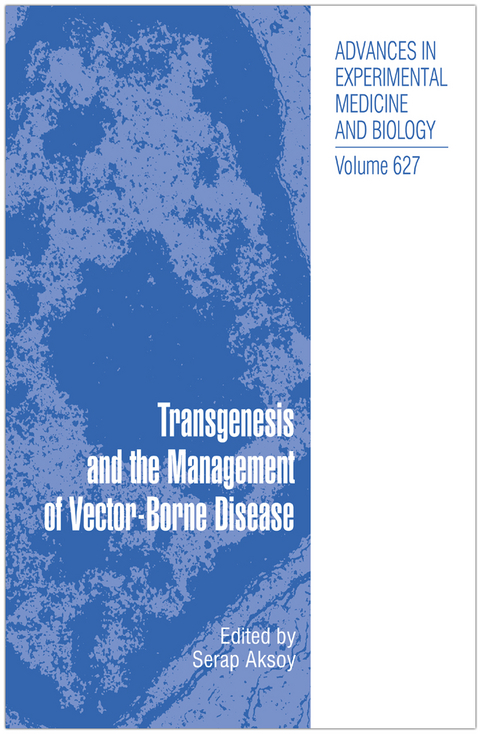
Transgenesis and the Management of Vector-Borne Disease
Springer-Verlag New York Inc.
978-1-4419-2682-1 (ISBN)
Perspectives on the State of Insect Transgenics.- Alphavirus Transducing Systems.- Paratransgenesis Applied for Control of Tsetse Transmitted Sleeping Sickness.- Bacteria of the Genus Asaia: A Potential Paratransgenic Weapon Against Malaria.- Proposed Uses of Transposons in Insect and Medical Biotechnology.- The Yin and Yang of Linkage Disequilibrium: Mapping of Genes and Nucleotides Conferring Insecticide Resistance in Insect Disease Vectors.- Impact of Technological Improvements on Traditional Control Strategies.- Insect Population Suppression Using Engineered Insects.- Wolbachia- Based Technologies for Insect Pest Population Control.- Using Predictive Models to Optimize Wolbachia-Based Strategies for Vector-Borne Disease Control.- Modifying Insect Population Age Structure to Control Vector-Borne Disease.- Technological Advances to Enhance Agricultural Pest Management.- Applications of Mosquito Ecology for Successful Insect Transgenesis-Based Disease Prevention Programs.
| Erscheint lt. Verlag | 29.11.2010 |
|---|---|
| Reihe/Serie | Advances in Experimental Medicine and Biology ; 627 |
| Zusatzinfo | XVIII, 171 p. |
| Verlagsort | New York, NY |
| Sprache | englisch |
| Maße | 165 x 248 mm |
| Themenwelt | Studium ► Querschnittsbereiche ► Prävention / Gesundheitsförderung |
| Naturwissenschaften ► Biologie ► Genetik / Molekularbiologie | |
| Technik ► Umwelttechnik / Biotechnologie | |
| ISBN-10 | 1-4419-2682-8 / 1441926828 |
| ISBN-13 | 978-1-4419-2682-1 / 9781441926821 |
| Zustand | Neuware |
| Haben Sie eine Frage zum Produkt? |
aus dem Bereich


